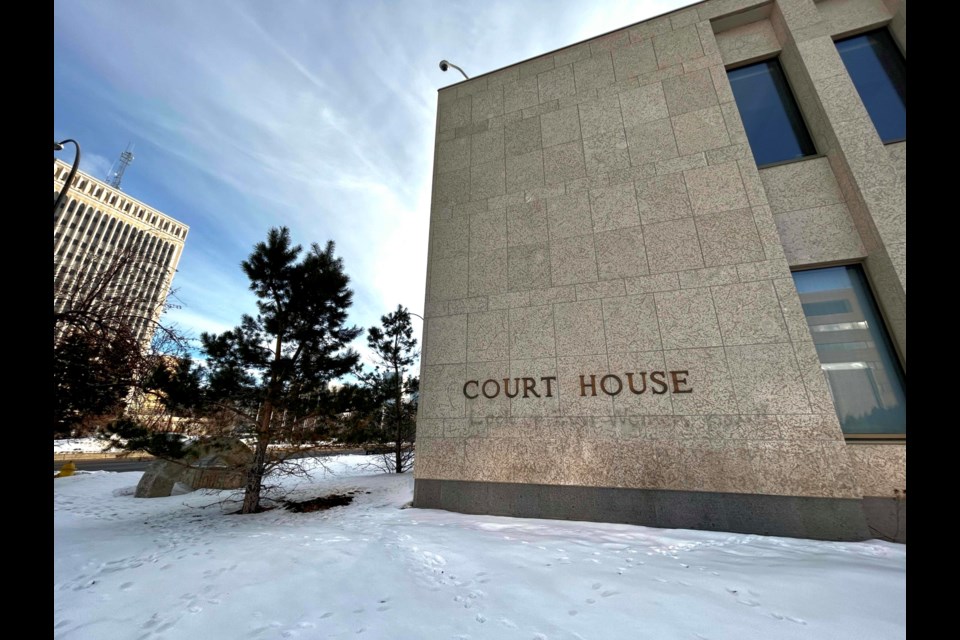REGINA – A sentencing hearing for Dillon Ricky Whitehawk in Regina Court of King's Bench regarding his role in the 2019 murder of Keesha Bitternose turned emotional as members of the slain woman’s family shared victim impact statements.
“I get an ache in my heart,” said Jeanette Anderson, Bitternose’s grandmother. “Keesha did not deserve to die the way she did … she was tortured to death."
“How can a human –°¿∂ ”∆µ be so cruel as to torture another human –°¿∂ ”∆µ as she was tortured,” Anderson wondered as she read her statement before the court.
Whitehawk looked on, seemingly unfazed as various family members shared details of how their lives changed on Jan. 6, 2020, when one by one, they learned the news of their loved one’s senseless murder.
“I can’t bear to think of the pain she felt in her last moments on Earth,” said Brianna Bitternose, describing her cousin’s big heart and beautiful smile. “We all buried a part of us with her.”
Crystal George - Bitternose’s stepmother - touched on a flawed justice system during her statement.
“In our traditional ways, banishment from your people would have been your punishment,” she told Whitehawk, reminding him about the Seven Grandfather Teachings. “Our own people are killing our own in Gang Life, when it should be Warrior Life.”
George said that all Bitternose “ever wanted was a family,” adding in her comments the importance of teaching youth about forgiveness.
“Today we seek justice for Keesha,” George said. “How do we seek justice in a system that wants to break us and continues to fail us?”
Bitternose was only 29 years old when she was brutally murdered Jan. 2, 2020, her body discovered three days later in a home on the 1500 block of Cameron Street. Back in December, 2022, Whitehawk was accused of first-degree murder in her death, but Justice Janet McMurtry found him guilty of second-degree murder instead. That ruling comes with a minimum life sentence, but what the Crown and defence lawyers were arguing on Feb. 28 was at what point Whitehawk could be eligible for parole. Crown prosecutors David Belanger and Adam Breker were seeking parole eligibility after 25 years, while Thomas Hynes (representing Whitehawk) argued a shorter period of time.
“We say Mr. Whitehawk’s involvement could be limited in some respects such that his parole eligibility be set at the 10 to 15 year range,” Hynes told the court.
Bitternose was the third person Whitehawk killed, having been convicted in two separate first-degree drive-by shooting deaths of Jordan Denton and Keenan Toto. With these facts in mind, Belanger argued that Section 745 (b) of the Criminal Code applies, which calls for life imprisonment without parole eligibility until 25 years of the sentence has been served - specifically for those convicted of second-degree murder when that person has been convicted of a previous murder.
Breker offered an alternative argument on behalf of the Crown, that of Section 745 (c), which offers a range of parole eligibility between 10 and 25 years. He called for a significant elevation above the 10-year starting point, describing the murder of Bitterness as “horrific, depraved, and unspeakably brutal acts of violence.”
“Dillon Whitehawk had no reason to repeatedly stab and assault this person, yet he did,” Breker said, making reference to information from a coroner’s report that noted more than 100 stab wounds on the body of Bitternose.
Hynes shared information about Whitehawk’s early years and previous experience with gangs, alcohol, and drug abuse.
“This was a personal vendetta between gang members that got out of hand after a night of drinking and drug use,” Hynes told the court.
Justice McMurtry will give her sentencing decision on April 25 after considering the arguments.
— for more from Crime, Cops and Court.




